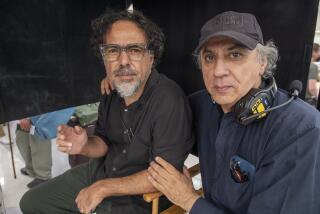The Master’s Legacy
- Share via
Richard Natale wonders if film purists will carp that the film industry’s intention of remaking Alfred Hitchcock movies is strip-mining its own past (“Remaking the Master,” May 30). But all other clues in his article suggest that we don’t have to fear--Hollywood has forgotten what made these movies good in the first place.
Hitchcock’s contribution to the language of classical film is second only to D.W. Griffith’s. In a career that started with silent film, he found a vocabulary of images that expressed at once the physical world and its darker underside. He was a master of suspense because he mastered time and space and could play them against each other as adroitly as Sinatra could toy with lyrics and melody.
The films of the ‘50s and ‘60s are a dialogue between Hitchcock and everyone else. Rossellini, Bresson, Truffaut and Antonioni had seen the films Hitchcock used to create the language of film, and they used that inherited language for artistic expression. This is the master’s legacy, and it is mostly lost in a modern cinema that reflects the choppy confusion of time and space that advertising and rock videos have given us.
JAMES VALENTINE
Los Angeles
More to Read
Only good movies
Get the Indie Focus newsletter, Mark Olsen's weekly guide to the world of cinema.
You may occasionally receive promotional content from the Los Angeles Times.









